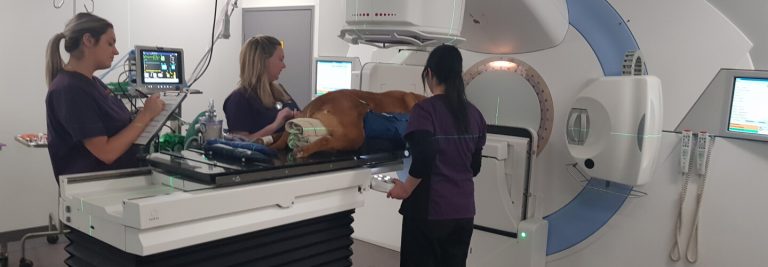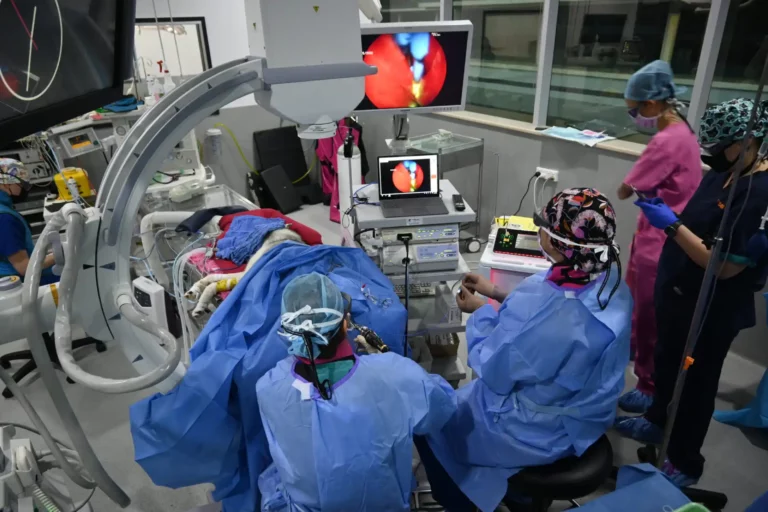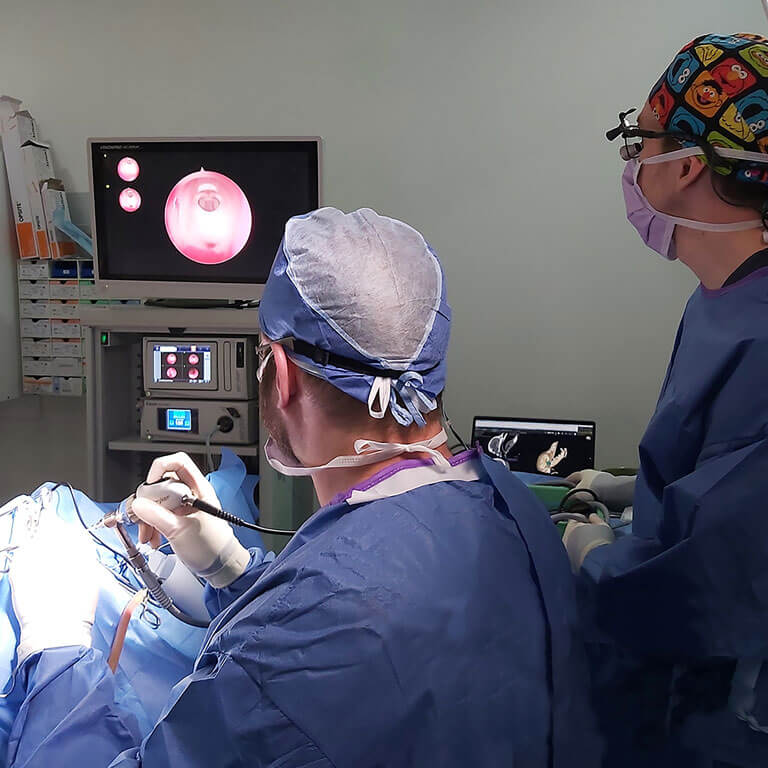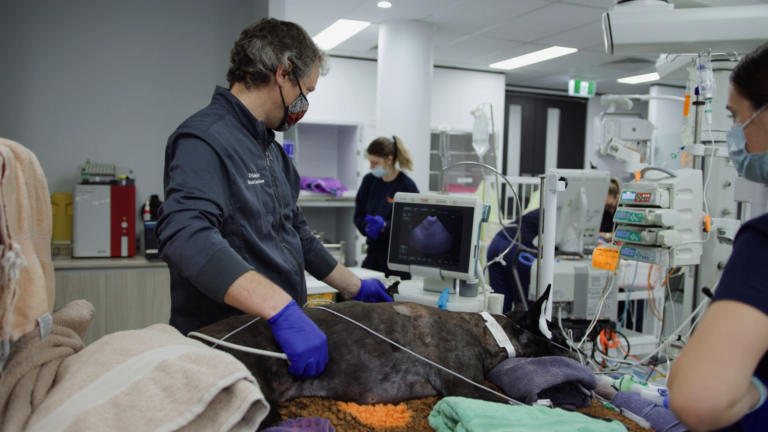Reviewed by Dr Bing Zhu (Internal Medicine Specialist)
A diabetic dog suffers from a medical condition known as diabetes mellitus, or simply “diabetes”.
What is diabetes?
Diabetes is where an animal does not have enough insulin hormone to allow cells to take in glucose, the body’s main energy source.
Although there are two forms of diabetes mellitus in humans, we mostly only see one type in dogs – when the dog is unable or no longer able to produce any insulin.
Without insulin, glucose builds up in the blood but is unable to enter the cells, so the cells become starved. The excess glucose then spills into the urine and causes problems in other areas of the body. These are the mechanisms behind the symptoms we see in diabetic dogs.
The root cause of diabetes can be genetic, but it can also occur from recurrent pancreatitis (inflammation of the organ that produces insulin).
Diabetic dog symptoms
Despite having an increased appetite, diabetic dogs will often lose weight. They will also appear lethargic and have excessive drinking and urination.
Diagnosing a diabetic dog
If you recognise the signs described above, see your local veterinarian. They may be able to perform a couple of relatively non-invasive tests to confirm diabetes.
A urine test can be performed to measure glucose levels. Normally, there should be no glucose in urine. However, due to abnormally high blood glucose levels, diabetic dogs will pass the glucose in their urine. Secondly, blood tests can also be performed to look for elevated glucose levels.
Sometimes, additional tests such as X-rays and ultrasounds may also be ordered to ruling out other diseases that can also cause glucose in urine or contribute to development of diabetes mellitus.
Treating a diabetic dog
As insulin is essential, and the dog is unable to make enough of their own, one of the only treatments for a diabetic dog is through providing daily or twice daily insulin injections at home. Unfortunately, there are no other well-proven treatments other than insulin injections.
Determining the type of insulin, dose, and injection frequency can be tricky and may require trial and error. Unlike many other drugs, there is no simple calculation that can be performed to determine the optimum dose. The experience and expertise of an Internal Medicine Specialist is beneficial to determine the best program for your dog. They will also be able to train you in insulin handling and injection technique. This is essential to help prevent issues arising from inadvertent errors (eg. over- or underdosing). Additionally the dose of insulin for a patient does not always remain the same, and may change with other disease states in the body as well as medications, activity and diet changes.
It is not uncommon for diabetes to occur currently with other diseases in dogs. Fortunately, Internal Medicine Specialists are experts in managing treating multiple concurrent diseases.
Diabetic dogs with cataracts
Most diabetic dogs develop severe cataracts within a year of being diagnosed with diabetes. A cataract is when the lens of the eye becomes opaque, thereby blocking the entry of light, leading to blindness.
Fortunately, dogs adapt well to blindness (provided you do not change the furniture at home – they may act like a completely visual dog), and you may elect not to treat this condition. However, a SASH eye specialist (Ophthalmologist) may be able to remove the cataract through surgery. The suitability of your dog for cataract surgery, and the likelihood of restoring vision will be discussed with you after an assessment of your dog. Because surgery and eye medications can interfere with diabetic control, we strongly recommend always having an internal medicine specialist appointment to assess and control your dog’s diabetes before booking in for cataract surgery.
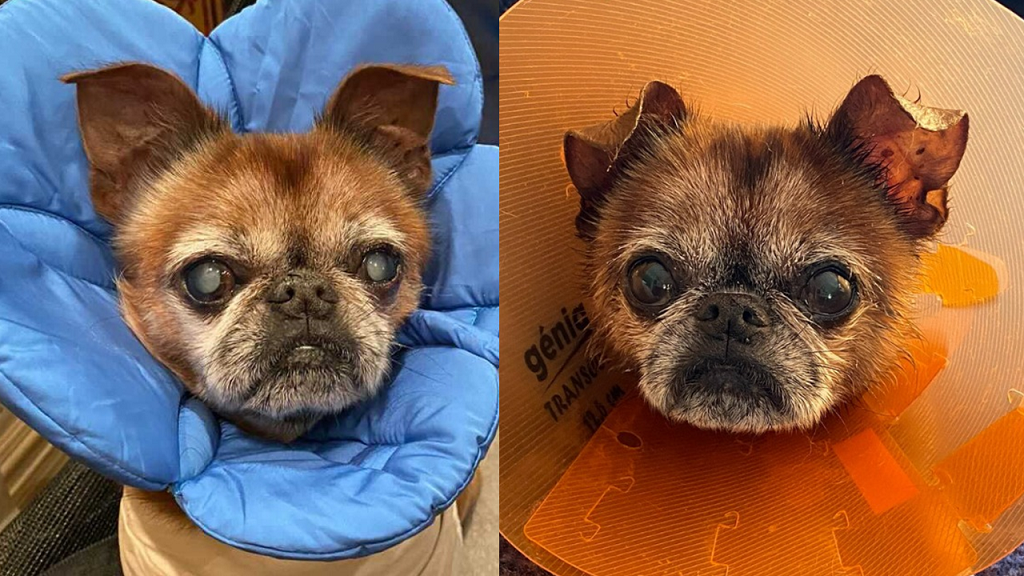
Diabetic dog outcome
Although curing the disease is very unlikely, long term management can be achieved with very good quality of life for the patient. With guidance and practice, owners can quickly become proficient at injecting insulin, and the dog can lead a relatively normal life. Although their quality of life at home is quite similar to a normal dog, if diabetic dogs develop a different disease that causes them to lose their appetite, they often need to be hospitalised more often and a lot sooner than those without diabetes.
If you are concerned about the health of your dog, take them to see your local veterinarian. If diabetes is suspected or confirmed, ask for a referral to SASH, where our specialists will be able to provide additional, world-class expertise and care.
Call us to book a consult by clicking the contact button below.
